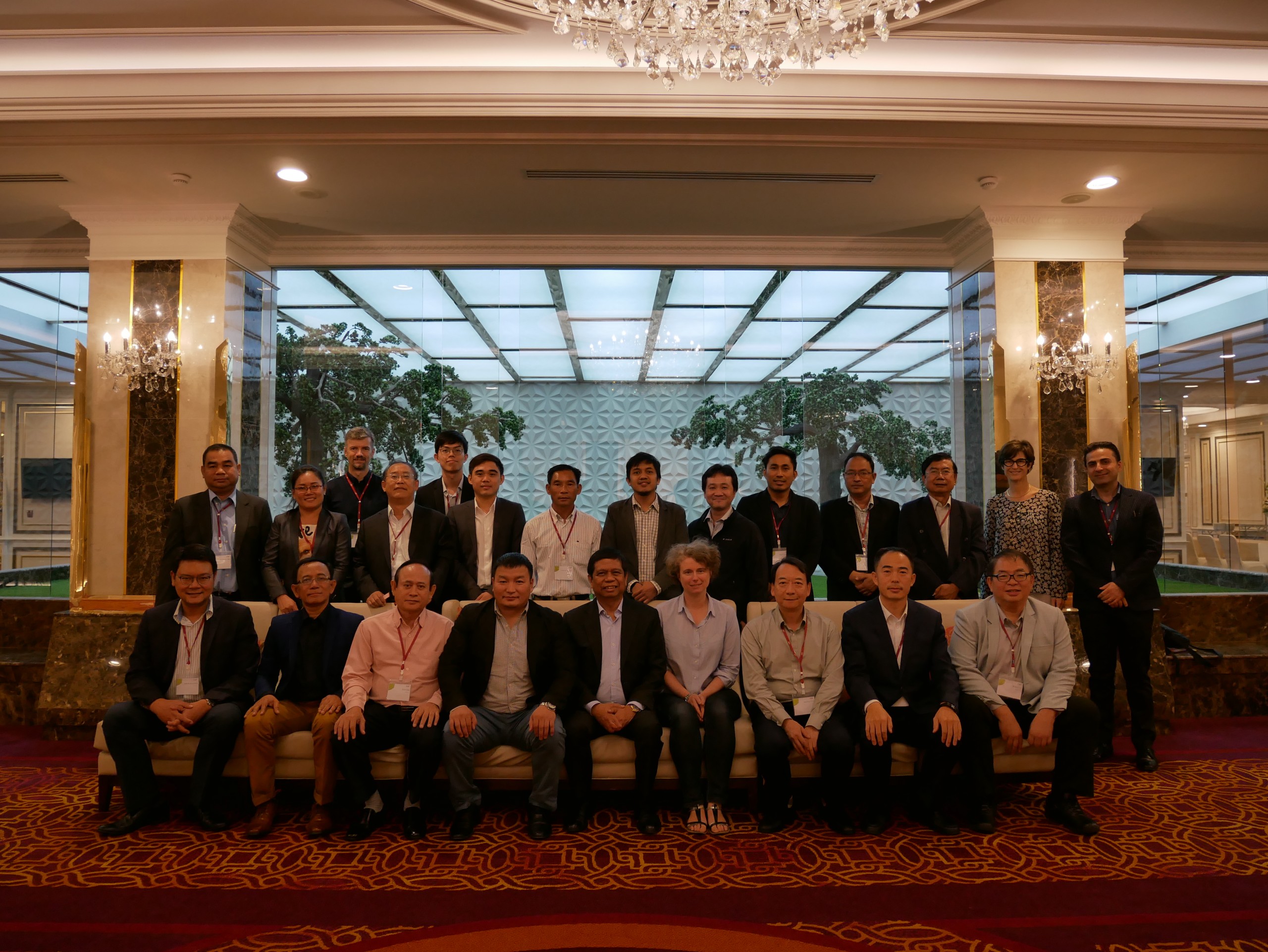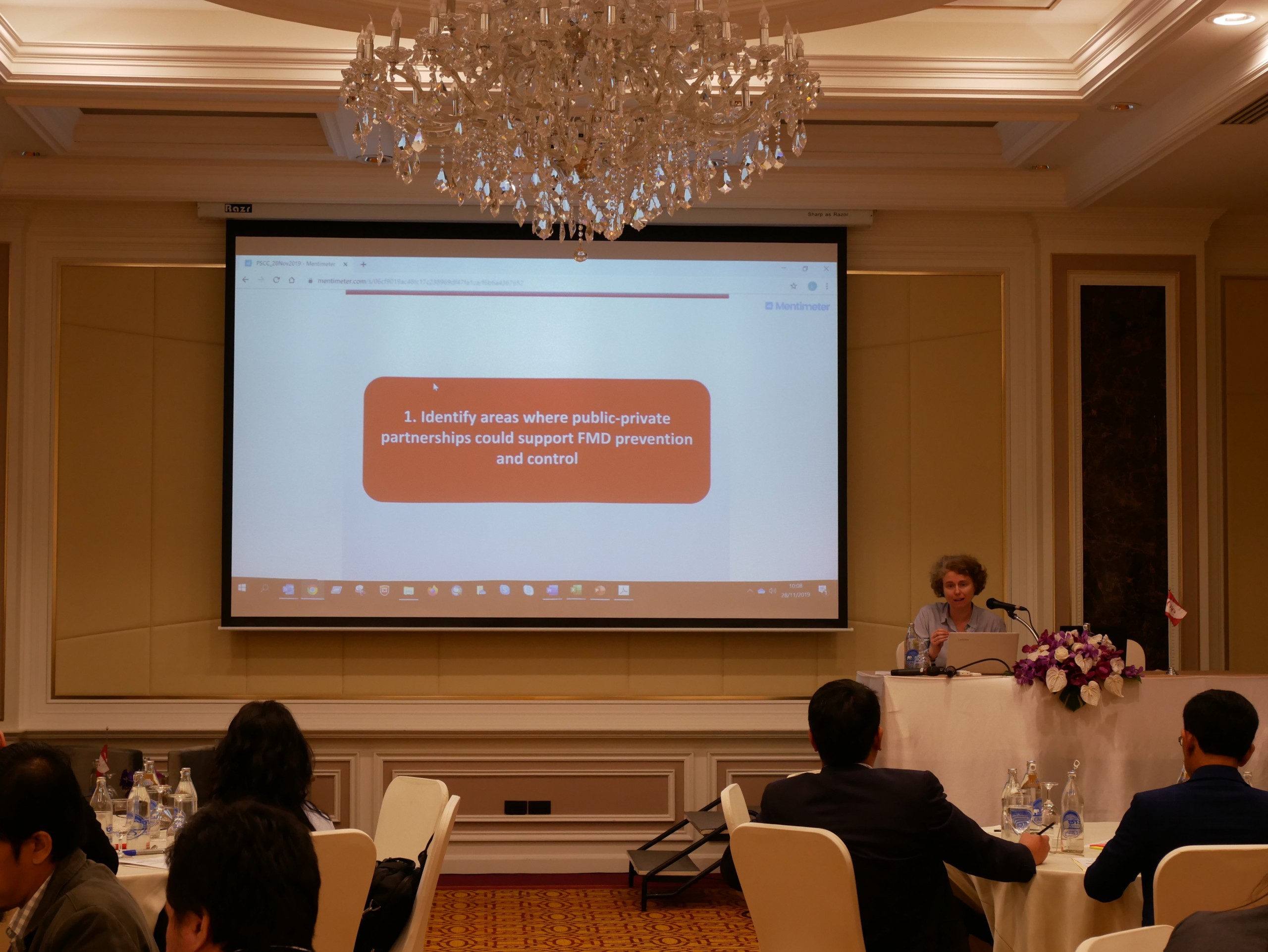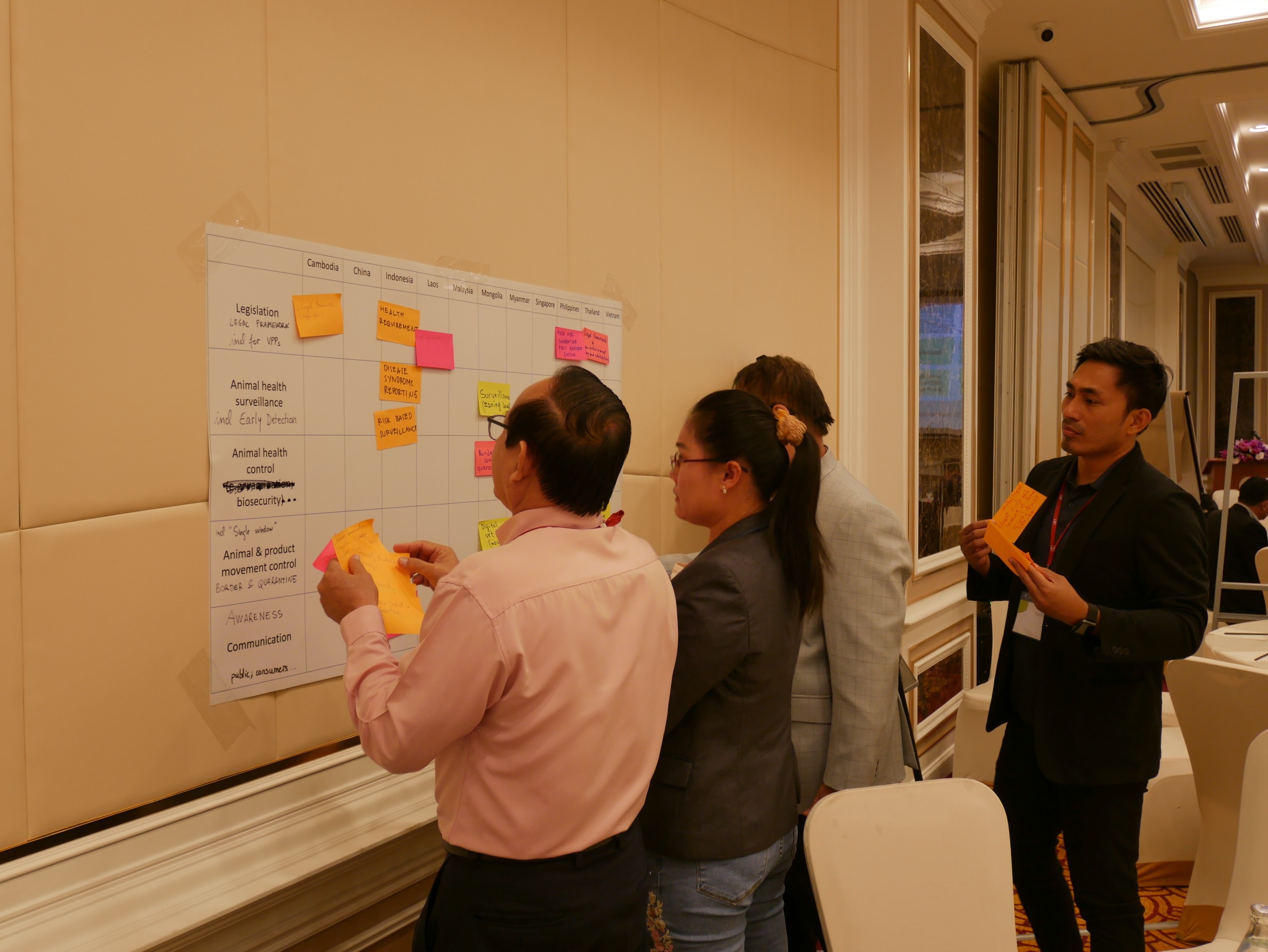
The OIE sub-regional workshop presenting public-private partnership in veterinary domain was organised in Bangkok on 26 and 27 November 2019. This was an opportunity to revive the Private Sector Consultative Committee (PSCC) for SEACFMD Campaign which was established and first met in 2007
Eighteen persons from ten countries participated from both the public and the private sector of the countries involved in the SEACFMD Campaign (List of participants)
The participants were reminded the background of this meeting:
Identification of areas in which public-private partnerships could support FMD prevention and control and prioritisation
The participants were first invited to identify and list the domains in which public-private partnerships could support FMD prevention and control. And then to select high priorities in their own country.
They were then suggested to indicate the activities they could conduct to develop or strengthen PPP in these domains in the next year (yellow and orange tags in the pictures below) and those to be considered in the next 5 years -pink tags) and therefore to be considered when developing the next SEACFMD Campaign.
Participants were invited to choose at least one activity to be conducted in 2020 and to consider and discuss between the public and private sector participants of the same country what could be the next steps to achieve it.
Brainstorming on how the private sector or private-public partnership can support the SEACFMD Campaign at sub-regional level
Discussions turned around vaccination protocol harmonized at sub-regional level, vaccination quality control, based on the South American model.
Some countries also mentioned data related topics such as data sharing, including the role of WAHIS regional core such as ARAHIS but also highlighting Countries’ responsibility to detect and report information. The management of big data was also briefly mentioned.
The main discussion was about the interest of having a network of traders and to involve them in some key OIE activities related to FMD (and possibly other TADs) control and prevention. Each country knows the most important traders, those who would be interested in joining FMD control activities and become a champion. Some countries have several and sometimes many international traders and attention should be given to not favour one or the other; identifying those traders who would represent the profession (via an association or other means) would therefore be crucial.
Main conclusions/recommendations



